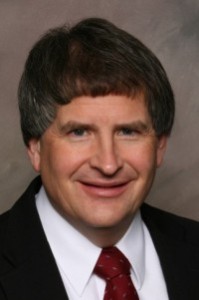Citizens speak against frack waste bill
From an Article by Rachel Molenda, Charleston Gazette, February 17, 2014
CHARLESTON, WV — Of 20 speakers at a House hearing Monday, only one — an industry representative — spoke in favor of a bill that would exempt natural gas drilling waste in the Marcellus Shale region from the state’s landfill tonnage limits.
Charlie Burd, executive director of the Independent Oil and Gas Association of West Virginia, said the bill — supported by the state Department of Environmental Protection — “recognizes the reasonable approach” of disposing such material.
“West Virginia’s commercial landfill regulations are among the strongest and most comprehensive in the country,” Burd said. “Disposal of these materials in commercial landfills will assure that these materials are handled in a highly regulated and environmentally positive manner.”
But in some instances, this exemption would surpass existing monthly landfill waste limits set by solid waste authorities. Six landfills in Brooke, Harrison, Ohio, Wetzel and Wood counties hold the gas-drilling material, which accounts for about one-third of the material accepted at each, according to DEP data from July 2012 to July 2013.
Thornton Cooper, a South Charleston attorney once employed by the state’s Public Service Commission to defend its solid waste laws in federal court, called the proposed bill “a wrecking ball that would undo an amazing amount of work that the Legislature did in the 80′s and 90′s.”
Cooper said both private and public landfills are underused and that “There is plenty of space in our landfills right now to let Marcellus Shale store the drilling contents,” throughout the state, not only in places like Wetzel County that have exceeded their limits.
Solid waste authorities are worried the bill (HB4411) would limit their ability to monitor and control these waste restrictions. The bill is pending in the House Judiciary Committee after passing the House Energy Committee.
Bill Hughes, of the Wetzel County Solid Waste Authority, told members of the House Judiciary Committee and DEP Secretary Randy Huffman Monday night that a “three-legged stool” was created more than 20 years ago requiring the DEP, the state’s Public Service Commission and local solid waste authorities “to work together in deciding sizing and environmental restrictions” of landfills.
“Unfortunately the recent memos from the DEP undid over 20 years of standing law and has now allowed our landfill in Wetzel County to exceed its legal limit by anywhere from 200 and 300 percent,” Hughes said. “The legal limit is 10,000. It’s been taking up to 40,000 tons a month.”
From a surface owner perspective, housing such waste in a landfill is better than the alternative, said Julie Archer of the West Virginia Surface Owners’ Rights Organization.
“Until recently it was actually common practice for the drillers to store their waste in open pits in the ground and to bury their drill cuttings on site on the surface owners’ land,” Archer said.
That changed in 2011 when Gov. Earl Ray Tomblin’s “Horizontal Drilling Act” was passed during a special session. The law said solid wastes from drilling had to be sent to permitted landfills or could be disposed of at drilling sites if the surface landowner consented.
The concern for Archer, she said, is that municipal landfills are not designed to hold “hazardous materials.” While a state-sponsored study was meant to address potential pollution from natural gas drilling, it never addressed waste from the Marcellus Shale formation, as reported by the Gazette last month.
“It’s well known that the Marcellus is radioactive,” Archer said. “Now, how radioactive, unfortunately we just don’t know because the state has insufficient data to fully understand the levels of warmth that are released from the Marcellus in the process of drilling and fracking.”
Residents in places that already receive fracking waste also expressed concern and disapproval of the bill. Fayetteville resident Mary Rahall referenced a renewed injection well permit that allows a pit near Wolf Creek to hold fracking fluids. Rahall said she worries about potentially negative health effects of such wells on West Virginians.
“I don’t feel like I can’t trust the West Virginia DEP anymore, and I’m relying on our government to protect the water and protect the people,” Rahall said. “Honestly, I never in my lifetime imagined that I would be at a hearing asking my legislators to protect me.”
Dr. Vicki Wolfe, of the West Virginia Environmental Council, said those “existing landfill caps should be maintained,” and that separate facilities should be constructed to hold drilling material at the expense of those companies, not the public.
The Rev. Jeff Allen, executive director of the West Virginia Council of Churches, said the bill “potentially externalizes the cost of fracking from a private entity to the public purse.”
>>>>>>>>>>>>>>>>>>
Marcellus Shale waste trips more radioactivity alarms than other products left at PA landfills in 2012
From an Article by Anya Litvak, Pittsburgh Post Gazette, August 22, 2013
Last year, nearly 1,000 trucks hauling 15,769 tons of Marcellus Shale waste were stopped at Pennsylvania landfill gates after tripping radioactivity alarms.
The trucks were pulled to the side, (checked) with hand-held detectors and some of the material was sent to laboratories for further evaluation. In the end, 622 tons were shipped to three out-of-state landfills specifically designed to dispose of hazardous and radioactive materials.
But most of the flagged waste was eventually allowed past the gates. It was safe enough to be buried along with other waste as long as it stays below the annual limits set by the PA Department of Environmental Protection and landfill operators.

